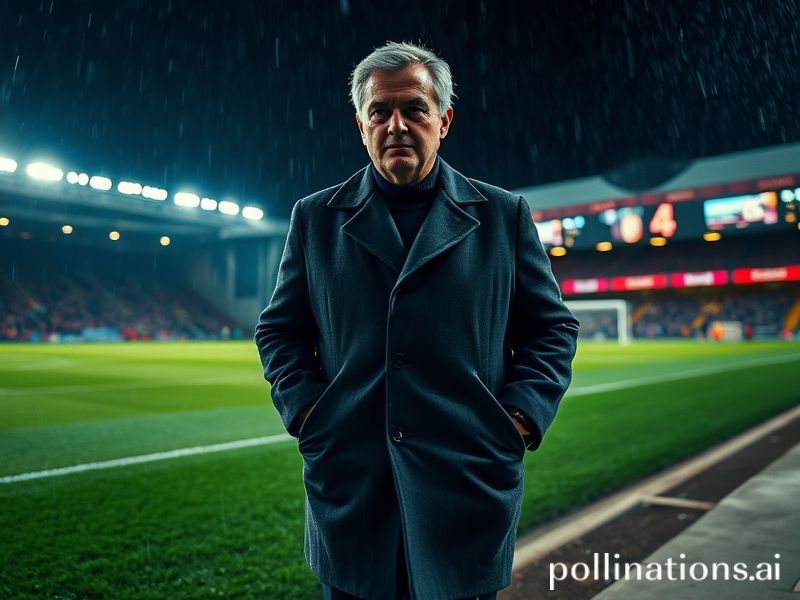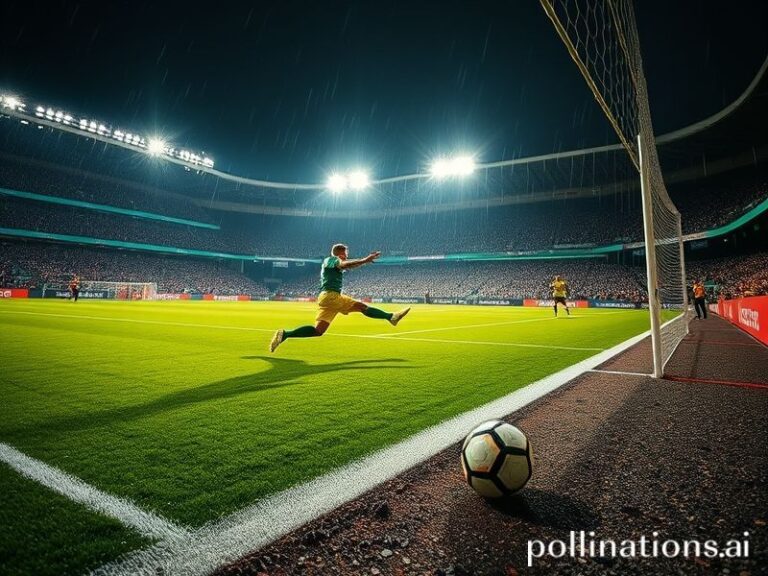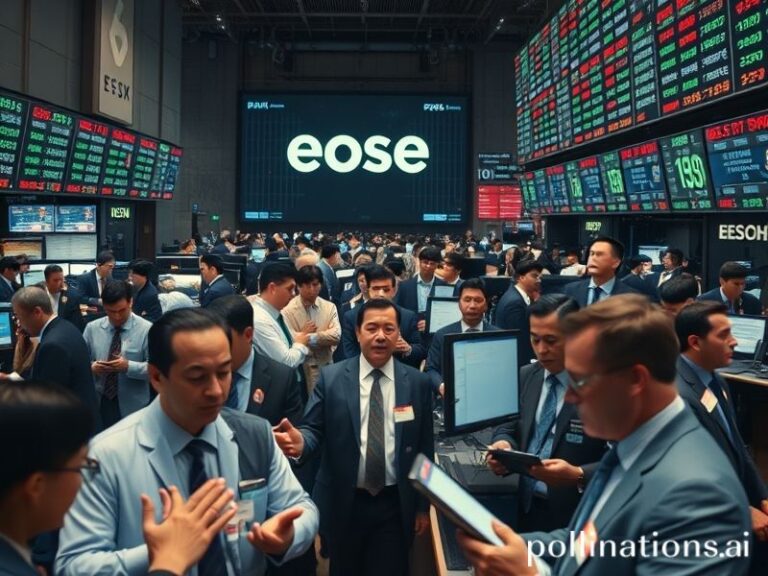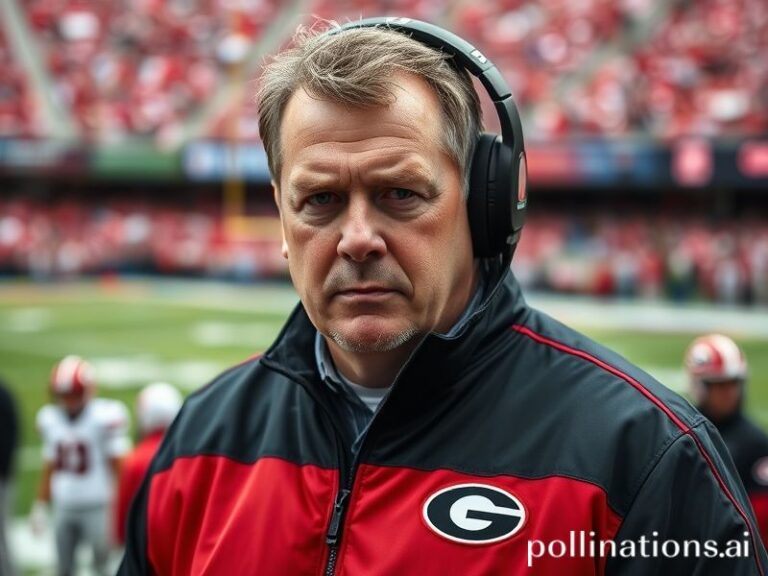Mourinho: The Last Roman Emperor of Football’s Collapsing Empire
Mourinho, the Last Roman Emperor of Football’s Collapsing Empire
By our correspondent in international schadenfreude
Rome, late spring. The Colosseum still stands, mostly because the EU won’t let Italy knock it down for a parking lot. Inside the nearby Stadio Olimpico, José Mourinho is busy auditioning for yet another sequel nobody asked for: “Gladiator III – The Press Conference.” The Special One, now officially the Slightly Less Special One, has just delivered Roma’s first European trophy in 31 years (the Conference League, a competition whose name sounds like an off-brand toaster). Across continents, traders in Singapore, sheikhs in Doha, and hung-over ultras in Buenos Aires simultaneously refresh their feeds to see if the Portuguese chaos merchant will finally be sacked or merely promoted to a higher circle of purgatory.
Mourinho is no longer a coach; he is a geopolitical barometer with better hair gel. When he wins, emerging-market currencies tied to Serie A broadcast rights wobble in cautious optimism. When he loses, crypto bros in Austin blame VAR, then quietly liquidate their Dogecoin. The man has become a futures market in human form—volatile, sentimental, and prone to unexplained crashes every third season.
His global significance lies not in tactics but in narrative. In an age when managers are expected to be polite data analysts who sip kale smoothies and apologize for breathing, Mourinho still behaves like a Cold War spymaster who’s just discovered a microphone in his fountain pen. He parks buses, throws players under them, and somehow convinces billionaires that this is charisma. From Beijing to Boston, fans debate whether he’s a strategic genius or simply the sporting equivalent of a ransomware attack. The answer, as always, is yes.
Consider the wider canvas. Europe’s leagues have become gated communities for sovereign wealth funds and petrochemical hobbyists. Meanwhile, Mourinho—an Iberian populist with a persecution complex—keeps rocking up like the last homeowner who refuses to sell to the developers. Roma’s American owners thought they were buying soft-power cachet in the Eternal City; instead they got a 60-year-old man who treats every post-match interview like the Nuremberg Trials. It’s democracy versus autocracy, but with more dramatic hand gestures.
The implications ricochet far beyond football. In Latin America, coaches study Mourinho’s siege mentality seminars the way economists once studied Milton Friedman, except with slightly fewer disappearances. In Africa, federation presidents WhatsApp each other grainy clips of his touchline theatrics, wondering if authoritarian melodrama can finally get them past the group stage. Even the Koreas have opinions: Pyongyang’s state TV ran a 15-minute segment praising Mourinho’s “revolutionary defensive discipline,” while Seoul’s pundits blamed him for late-stage capitalism’s moral decay. Somewhere in Switzerland, FIFA executives add both broadcasts to their NFT portfolio and light cigars with human rights reports.
And yet, beneath the pantomime villainy, there is something almost quaint—like watching a cassette tape lecture an algorithm. Mourinho still believes in enemies, conspiracies, and the galvanizing power of collective paranoia. In our era of curated global niceness, where brands apologize for existing and every corporation has a Pride float, his stubborn refusal to evolve feels perversely noble. He is the last man shouting at clouds that are, admittedly, owned by Amazon Web Services.
As the summer mercato approaches, the rumor mill places him everywhere: Paris (where Qatari royals crave a Champions League like a child craves validation), Newcastle (Saudi Arabia’s newest theme park), or even back to Chelsea for a record fifth divorce. Each destination maps neatly onto the shifting tectonics of soft power and hard cash. Wherever he lands, GDPs will twitch, journalists will sharpen knives, and fans will convince themselves that this time the third-season implosion can be scheduled for after the parade.
The planet keeps warming, democracies keep buffering, but Mourinho remains—an exquisite corpse of twentieth-century ego dragged into the twenty-first on a gilded tactical whiteboard. He may not save football, but by God he’ll make its collapse entertaining. And in the end, isn’t that what international cooperation is really about? Agreeing on a shared spectacle while everything burns.
Cue the thumb to the eye, the sprint down the touchline, the inevitable fine. Curtain falls. Credits roll. Somewhere, a supercomputer updates its Mourinho meltdown probability to 97.3 percent. The other 2.7 percent is just hope, poor bastards.







